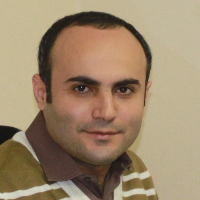Understanding the Gülen Movement via the Resource Mobilization Theory
Author(s):
Abstract:
In the mid 20th century, Saied Nursi, a Turkish Sufi scholar of Turkey inspired by the spiritual tradition of Islam founded the Nuriehs movement to promote science and religion and to reconcile the differences between tradition and modernity. Alongside and derived from the Nuriehs movement a social movement was established by the charismatic leadership of Fethullah Gülen. It aimed to serve the people and improve their education as well as their livelihood through the promotion of Islamic teachings and the native culture. Today, Gülen is known worldwide as an influential intellectual. He is remembered as the father of social Islam in Turkey. His influence, however, goes beyond Turkey's borders. The impact of his activities is so extensive that his work, and that which is continued by his followers, is named the Gulen movement. Despite most current Islamic movements, this movement is not political in nature. Its goals are rather social and educational. Gulen stood at the apex of a network which included many businessmen, traders and scientists who all aspired to achieve Gulen goals and who were managers of companies, publishing houses, schools, colleges, investment institutions, and cultural centers inside and outside Turkey. This article attempts to break the ground for an understanding of Gulen's movement, and to explain reasons why his movement was so successful. In doing so, the article uses the resource mobilization theory. Such theoretical tool, accompanied by a further analysis of Turkey's historical and political context, which was influenced by Gulan's sermonic speeches, helps to provide a body of knowledge to understand Gulen's movement. Such knowledge probes concepts such as generosity, philanthropy, insightful beliefs, salvation, and serving the people. These are some sociological aspects of Gulen's work.
Keywords:
Language:
Persian
Published:
Journal of Iranian Social Studies, Volume:7 Issue: 3, 2013
Pages:
75 to 99
https://www.magiran.com/p1251909
سامانه نویسندگان
مقالات دیگری از این نویسنده (گان)
-
10 کتاب برتر جامعه شناسی
فصلنامه رشد آموزش علوم اجتماعی، پاییز 1398 -
شاه نفتی: نفت و سقوط رژیم پهلوی
علی محمد حاضری، *
مجله مطالعات اجتماعی ایران، بهار 1395


